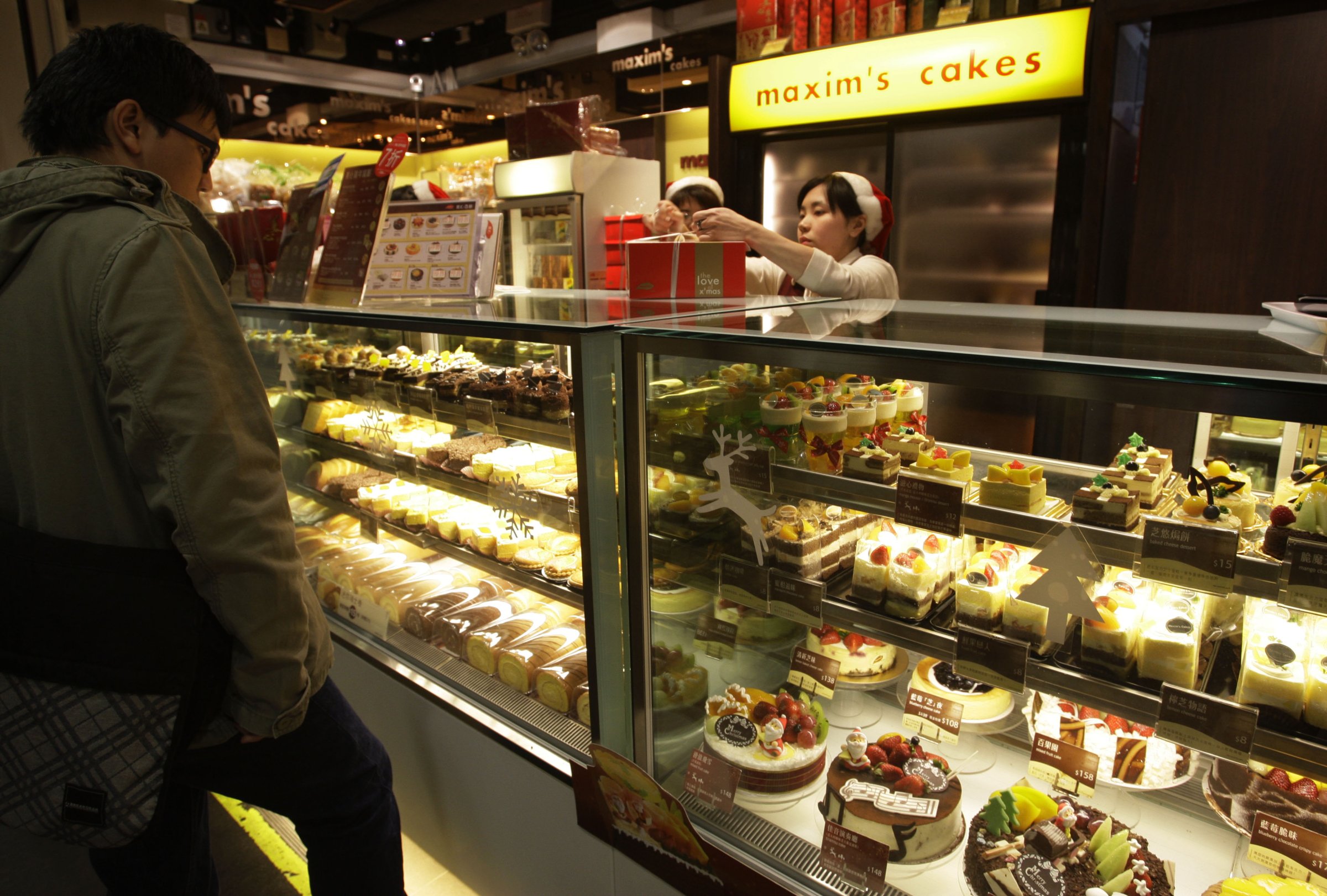
A Taiwanese food-safety scare has spread to Hong Kong with the revelation that the city’s biggest bakery chain, as well as branches of 7-Eleven and Starbucks, may have been selling pastries made with so-called gutter oil.
The Hong Kong–based South China Morning Post reports that the popular breakfast staple known as pineapple buns, offered in branches of Maxim’s Cakes and 7-Eleven, as well two specialty Starbucks outlets, could have been made with gutter oil — a potentially harmful blend of oil extracted from food waste, offal and the byproducts of tanneries.
The news once again puts the issue of food safety under the spotlight in a part of the world that has been bedeviled by everything from adulterated baby milk formula to exploding watermelons and even fake eggs.
The Post said that since August 2011 Maxim’s Cakes had bought 34 tons of oil from a Hong Kong importer, who in turn purchased it from Chang Guann, a major lard supplier based in Taiwan. The oil was used to make the bakery chain’s iconic pineapple buns — so called not because they contain pineapple but because of the distinctive shape of the sugar and biscuit crust baked onto the buns’ surface. All the items have now been recalled.
Police in Taiwan last week said that Chang Guann had purchased 243 tons of oil from a gutter oil ring in southern Taiwan since March. The Taiwanese lard giant — which says it was unaware that the oil was gutter oil — in turn sold 51,981 cartons of oil to hundreds of food companies around Asia, according to Taiwan’s Food and Drug Administration.
Authorities in Taiwan say that over a thousand Taiwanese companies have used oil supplied by Chang Guann to make a total of 139 different products. Local groceries across China pulled several Taiwanese brands of dumplings, sauces and noodles from their shelves over the weekend.
Many regional food suppliers and restaurants harbor reservations about the quality of food from China, where a series of recent scandals — including chicken feet marinated in hydrogen peroxide and the use of expired meat by one of the country’s top food suppliers — continues to unsettle consumers.
Still, Taiwan had boasted a better reputation.
“Bakeries from Hong Kong, Taiwan and Singapore have done particularly well in China because of worries about locally produced food,” wrote the New York Times, in a Sept. 6 article about the Mid-Autumn Festival pastries known as moon cakes.
But in the wake of the Chang Guann scandal, revelers could be shunning Taiwanese moon cakes this year. Hong Kong health officials told Agence France-Presse that moon cakes sold around the city are undergoing checks.
Maxim’s has told the Hong Kong authorities its moon cakes were not made with contaminated oil, but lab tests are being carried out, the Post reports.
[SCMP]
More Must-Reads from TIME
- Donald Trump Is TIME's 2024 Person of the Year
- TIME’s Top 10 Photos of 2024
- Why Gen Z Is Drinking Less
- The Best Movies About Cooking
- Why Is Anxiety Worse at Night?
- A Head-to-Toe Guide to Treating Dry Skin
- Why Street Cats Are Taking Over Urban Neighborhoods
- Column: Jimmy Carter’s Global Legacy Was Moral Clarity
Contact us at letters@time.com